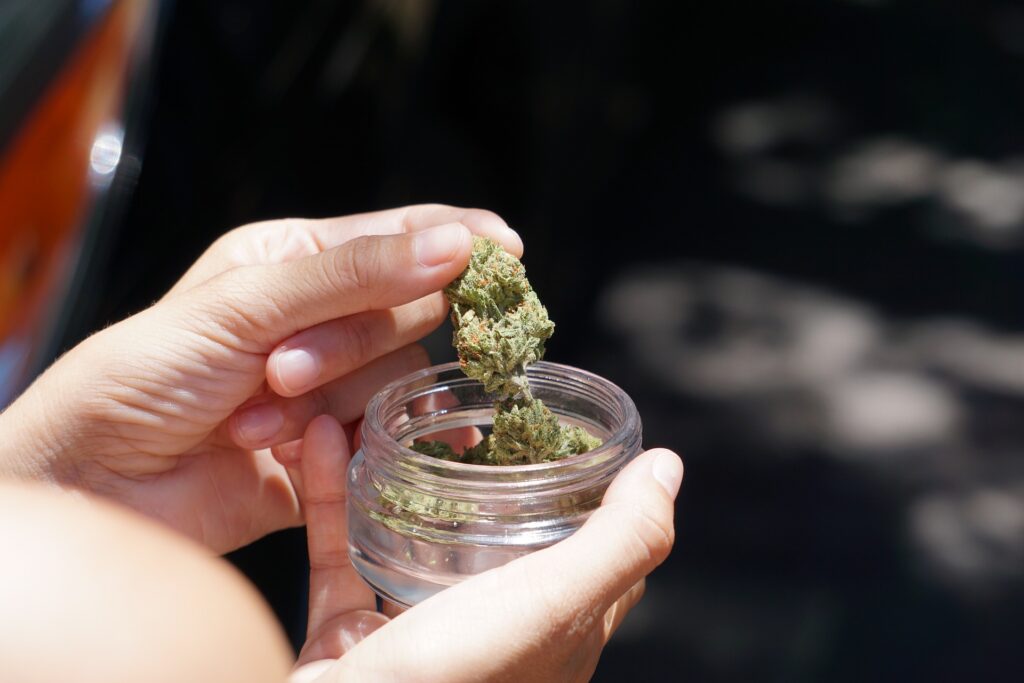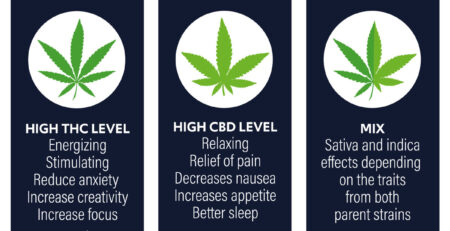Cannabis and The Workplace
Cannabis and the workplace: drug testing, workplace policies, and employee rights

As the legalization of cannabis becomes more widespread, employers and employees alike are grappling with how to navigate its use in the workplace. From drug testing policies to employee rights, there’s a lot to consider when it comes to cannabis and work. In this blog post, we’ll explore the challenges and opportunities that come with integrating cannabis into the workplace, as well as some best practices for keeping your team safe and happy. So grab a cup of coffee (or green tea) and let’s dive in!
Cannabis in the Workplace: The Current Landscape

While cannabis use is becoming more accepted in society, there is still a lot of confusion surrounding its legality and how it affects the workplace. This section will explore the current landscape of cannabis in the workplace, including drug testing, workplace policies, and employee rights.
Cannabis use is still technically illegal under federal law, but many states have legalized it for medicinal or recreational purposes. This has created a confusing patchwork of laws across the country, which can make it difficult to know what is allowed in the workplace.
Most employers have drug policies that prohibit employees from being under the influence of drugs while at work. However, these policies do not always specifically mention cannabis. This can lead to confusion about whether or not employees are allowed to use cannabis before or during work hours.
Employers may require employees to take a drug test as part of the hiring process or randomly throughout employment. Cannabis can stay in your system for weeks after last use, so even if you only used it recreationally on the weekend, you could still test positive for work on Monday morning.
If you do test positive for cannabis, you could be subject to disciplinary action from your employer, up to and including termination. Even if your state has legalized cannabis, employers are not required to accommodate its use in the workplace.
Employees who need to use cannabis for medical reasons may have some protections under the Americans with Disabilities Act (ADA). However, these protections are not always clear-cut
Drug Testing Policies and Procedures

In recent years, the legalization of cannabis has led to increased discussion about how the drug may affect the workplace. For example, employers may wonder if they can require employees to take a drug test for cannabis. And if an employee tests positive for cannabis, can the employer take disciplinary action?
There are no easy answers to these questions. Cannabis is still illegal under federal law, and most states have not legalized the drug for recreational use. This means that employers may have different policies when it comes to drug testing and discipline for employees who use cannabis.
Some employers may have a zero-tolerance policy for any drugs, including cannabis. This means that an employee who tests positive for cannabis could be subject to disciplinary action, up to and including termination. Other employers may take a more lenient approach, and only test employees for cannabis if there is a suspicion of drug use.
Still other employers may choose not to test employees for cannabis at all. This is often the case in states where cannabis has been legalized for recreational use. In these states, employers may feel that drug testing for cannabis is unnecessary and intrusive.
Regardless of an employer’s policy on drug testing, all employees should be aware of their rights when it comes to being tested for drugs at work. Employees have a right to privacy, and they should be informed of any drug testing policies before they are asked to take a test. If an employee does not want to take a drug test, they should be allowed
Employee Rights and Responsibilities

The use of cannabis is becoming more mainstream, with more and more states legalizing its use. This means that employers are grappling with how to deal with employees who use cannabis, both on and off the job.
Employers have the right to set workplace policies regarding drug use, including drug testing. However, they must be careful not to violate employee rights in the process. For example, an employer cannot discriminate against an employee based on their medical use of cannabis.
Employees also have responsibilities when it comes to cannabis and the workplace. They need to be aware of their company’s policies and abide by them. If they are using cannabis medically, they should disclose this to their employer and follow any reasonable accommodation guidelines that may be in place.
Ultimately, the best way to deal with cannabis in the workplace is to have open communication between employees and employers. By being upfront about policies and expectations, everyone can work together to create a safe and productive work environment.
Creating a Positive and Productive Workplace Culture

A productive workplace culture is one where employees feel comfortable and are able to do their best work. A positive workplace culture can be created by having a clear and concise policy on drug use, providing employees with the resources they need to stay healthy and productive, and creating an open and supportive environment where employees feel comfortable communicating with management.
An effective drug policy should be clear about what substances are prohibited and the consequences for using them. It should also provide employees with information about available resources for assistance if they have a substance abuse problem. Employees should be aware of any drug testing that may take place and know their rights regarding such tests.
It is also important to create a workplace culture that supports employee health and well-being. This can be done by offering wellness programs, providing access to mental health resources, and encouraging healthy lifestyle choices. Creating a safe and respectful workplace where employees feel valued will also help to create a positive and productive workplace culture.
Workplace policies and employee rights

Most employers have drug policies in place that prohibit employees from being under the influence of drugs while at work. However, with the legalization of cannabis in many states, employers are faced with the question of how to deal with employees who use cannabis off-hours. Do they need to change their drug policies? Can they still drug test employees? What are the rights of employees who use cannabis?
The answer to these questions is not always clear, but there are some general guidelines that employers can follow. First and foremost, employers should make sure their drug policies are up to date and clearly state what is and is not allowed. They should also be aware of state and local laws regarding cannabis use, as these laws may impact their ability to drug test or take disciplinary action against employees. Finally, employers should be aware of their employees’ rights when it comes to off-hours cannabis use.
In general, employers can continue to enforce their existing drug policies even if cannabis is legal in their state. However, they may need to make some adjustments if they want to maintain a zero-tolerance policy towards drugs. For example, they may need to add language specifically prohibiting the use of cannabis, both on- and off-duty. They may also need to invest in more sophisticated drug testing technologies that can detect recent cannabis use.
Employees who use cannabis off-hours generally have the same rights as other employees when it comes to workplace policies and discipline. However, there are some exceptions
Testing for cannabis use

When it comes to cannabis and the workplace, drug testing is a controversial topic. While some employers require employees to submit to drug tests as a condition of employment, others have more relaxed policies regarding drug use. And with the increasing legality of cannabis in many states, the question of how to handle employee cannabis use is becoming more complex.
There are a few different ways that employers can test for cannabis use. The most common method is urine testing, which can detect the presence of THC, the active ingredient in cannabis, for up to 30 days after use. However, urine tests are not always accurate, and they can’t always tell if an employee is impaired on the job. Blood tests are another option, but they’re even less reliable than urine tests and are generally not used for workplace drug testing.
So what’s an employer to do? If you’re considering implementing or changing a workplace policy on cannabis use, there are a few things to keep in mind. First, it’s important to understand that drug testing is not foolproof. Second, think about what your policy is trying to accomplish. Are you trying to prevent employees from using cannabis at work? Or are you more concerned with ensuring that employees who do use cannabis are not impaired on the job?
Whatever your goal, it’s important to consider the potential implications of implementing or changing a workplace policy on cannabis use. Will it impact employee morale? How will it affect your company’s bottom line? These are all important
What to do if you test positive for cannabis

If you test positive for cannabis at your workplace, there are a few things you can do. First, try to talk to your boss or HR department to see if they have any policies in place regarding cannabis use. If they do not, then you may want to consider appealing the results of the drug test.
If your boss or HR department is not willing to work with you, then you may have to look for another job. However, there are a few things you can do to try and keep your current job. First, you can try to find another job that is more tolerant of cannabis use. Second, you can try to negotiate with your boss or HR department to create a policy that would allow you to keep your job despite testing positive for cannabis.
Whatever you do, make sure that you are honest with your boss or HR department about your cannabis use. Lying about it will only make the situation worse.
The future of cannabis in the workplace

The legalization of cannabis is sweeping the nation, with more and more states passing laws to allow its use for medical and recreational purposes. This trend is likely to continue, which means that the issue of cannabis in the workplace is only going to become more prevalent.
As a result, employers need to be prepared to deal with the implications of cannabis in the workplace. This includes having a clear policy on drug testing, as well as outlining what employees can and cannot do while under the influence of cannabis.
Employers also need to be aware of their employees’ rights when it comes to cannabis use. In some states, employees may have a legal right to use cannabis for medicinal purposes, even if it violates their company’s drug policy. Employers need to be familiar with the laws in their state so that they can properly handle these situations.
The future of cannabis in the workplace is likely to be full of challenges and complexities. However, by being prepared and understanding the issues at hand, employers can ensure that they are able to navigate this new landscape successfully.
Drug Testing in the Workplace
Many employers require their employees to undergo drug testing, both at the time of hiring and on a regular basis thereafter. Drug testing can take many forms, from urine tests and blood tests to mouth swabs and hair follicle tests. And while most employers test for illegal drugs like cocaine and heroin, more and more are starting to test for cannabis as well.
There are a few different reasons why an employer might require drug testing. Some employers do it to ensure a safe and productive workplace, while others do it to comply with insurance requirements or government regulations. In some cases, an employer may require drug testing if they have reason to believe that an employee is using drugs on the job.
Employee rights when it comes to cannabis use

In recent years, with the growing acceptance of cannabis as a legitimate medical treatment, more and more employees are asking about their rights when it comes to cannabis use. Unfortunately, there is no clear-cut answer, as laws and workplace policies vary from state to state and country to country. However, there are some general principles that can be applied in most cases.
First and foremost, it is important to remember that cannabis is still illegal under federal law in the United States. This means that employers are within their rights to prohibit its use in the workplace and to drug test for it. However, many states have now legalized cannabis for medical or recreational use, so employees may have certain protections under state law.
For example, in California, employers cannot discriminate against employees who use cannabis for medicinal purposes with a valid doctor’s recommendation. And in Colorado, employers cannot take action against employees solely for off-duty cannabis use unless it adversely affects job performance or safety.
Employees should also be aware of their company’s policy on drug use. Most workplaces have some sort of policy in place prohibiting the use of illegal drugs, and many also prohibit the use of legal drugs that could impair job performance. Some companies may make an exception for medicinal cannabis use, but this is by no means universal. So if you’re using cannabis medicinally, it’s always best to check with your employer first.
Conclusion
It is important for employers to understand the law regarding cannabis and create a workplace policy which caters to their specific needs. Employers should also be aware of employee rights in regards to drug testing and ensure that any tests are conducted with employees’ consent, in accordance with legal guidelines. With more states legalizing cannabis, it is becoming increasingly important that businesses have a clear understanding of how they can address this issue within their workplace policies.
















Comment (1)
[…] 1: Cannabis is a gateway drug Some people claim that using cannabis leads to using harder drugs. This is just […]
Comments are closed.